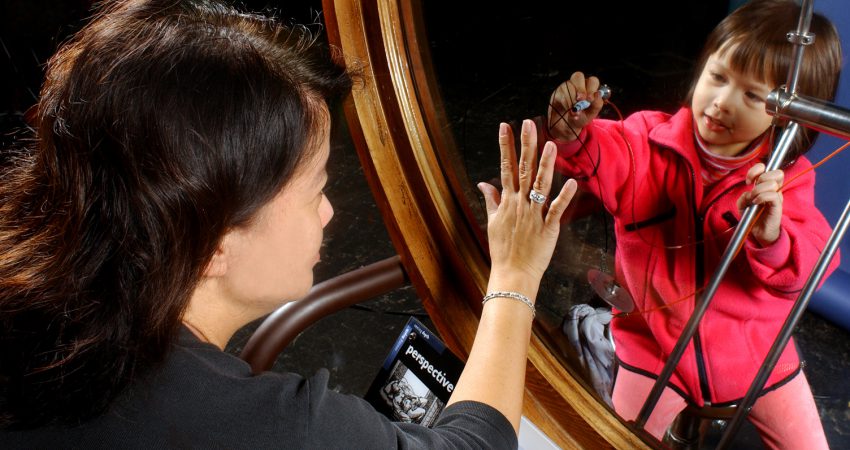
By Heather King - December 2014
PAPER CITATION
Perera, L. D. H. (2014). Parents’ attitudes towards science and their children’s science achievement. International Journal of Science Education, 36(18), 3021–3041. doi:10.1080/09500693.2014.949900
In this paper, Perera compares data from 15 countries on family socioeconomic status (SES), student achievement in science, and parental attitudes toward science.
Two hypotheses form the backdrop to this study:
- Positive parental attitudes toward science positively affect children’s views of science and therefore result in higher achievement scores
- Families with higher SES are more likely to have positive attitudes than those with lower SES
These hypotheses frame the relationships noted in the literature among key sources of inequality in student achievement and aspirations. In general, when a country’s SES levels increase, science performance scores also rise. Moreover, the extent to which parents value science also correlates with student achievement in science.
Research Design
The data were taken from the 2006 PISA survey – an international biannual survey of 15 year-olds . In addition to student test scores, parental attitudes were measured by indices on the general value of science, personal value of science, and importance of science. SES data were related to family background, parental education and occupation, wealth, and number of books in the home. The data came from both developing and developed countries across the globe.
Findings
Statistical analysis indicated a positive relationship between parental attitudes toward science and children’s achievement: Holding all else constant, when parental attitudes increased by 1 unit above the school mean, test scores increased by 3.09 points.
Positive parental attitudes did not benefit children from affluent backgrounds any more than they benefited those from poorer backgrounds. This finding suggests that the positive attitudes of parents may help children to engage with and improve their science achievement even in families with lower SES.
The findings suggest that the key variable in the effect of parents on student achievement is not SES but the parents’ relationship with their children, their children’s teachers, or other features of the social context.
Implications for Practice
The finding that parental attitudes are important regardless of SES has significant implications for all education providers. Students from low SES backgrounds are, in general, less able to access learning and cultural resources and are thus essentially penalised by a middle-class education system. However, Perera’s findings highlight the importance of parents (and other close relatives) in supporting students’ aspirations and achievements.
Many informal education providers have already sought to support parents’ engagement with their children (see, for example, the EU-funded FEAST project and the work of the Harvard Family Research Project (See www.hfrp.org). Other providers have developed programmes or resources that equip all members of a family to engage in science inquiry (see Allen & Gutwill, 2010; Borun et al., 1998). Perera’s study suggests that efforts aimed at families with low SES could be important strategies for broadening participation in science and related fields.
Theoretical Basis
Bandura’s (1986) social learning theory suggests that individuals tend to avoid tasks in which they lack confidence. Lareau (1987) argued that, because schools are largely middle-class institutions, middle-class children and parents are best equipped to interact with teachers and the process of education. In addition, wealthier families can finance trips to museums or tuition for special programs, thus supporting their children’s achievement.
These perspectives combine to suggest that lower SES families would have less self-efficacy and confidence in education generally and in science in particular, so they would be less likely to project positive attitudes toward science.
However, findings from this rigorous statistical analysis challenge this prediction. Low SES parents can in fact encourage their children and equip them with the confidence and aspirations to succeed.
This paper does not develop a theory to explain why parental support is so influential. However, one useful concept may be the notion of family science capital. Science and sociocultural resources—what you know and who you know—can be held, shared, and distributed across the family unit. See Enterprising Science at King’s College London for further discussion of this emerging concept.
References
Allen, S. & Gutwill, J.P. (2009). Creating a program to deepen family inquiry at interactive science exhibits. Curator, 52, 3: 289–306
Bandura, A. (1986). Social foundations of thought and action: A social cognition theory. Englewood Cliffs, NJ: Prentice Hall.
Borun, M., Dritsas, J., Johnson, J. I., Peter, N., Wagner, K., Fadigan, K., Jangaard, A., Stroup, E. & Wenger, A. (1998).: Family learning in museums: The PISEC perspective. Philadelphia, PA: Franklin Institute.
Lareau, A. (1987). Social class differences in family-school relationships: The importance of cultural capital. Sociology of Education, 60, 73–85.




